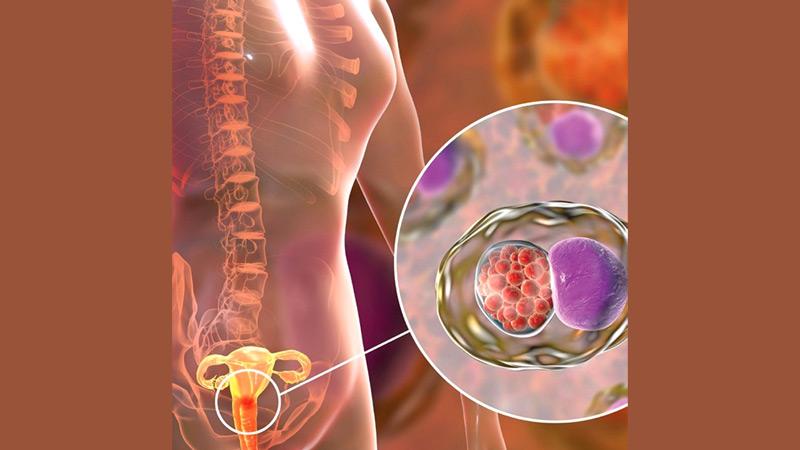
Cervical cancer is one of the leading cancers among women in Sri Lanka. The Sunday Observer spoke to Consultant Community Physician, National Cancer Control Program ( NCCP) , Ministry of Health , Dr Suraj Perera to ask him for more information on how and why Sri Lanka is seeing a spike in Cervical Cancer. To our question on how many new patients were being detected yearly, he said, citing figures from the National Cancer Registry Data of National Cancer Control Program, that about 1000 -1200 patients with cervical cancers are newly detected yearly.
Asked what age group most of them fell into, he said that the majority were detected from the age of 35 years and above. He further said that according to the mortality data published by the Registrar General Department, about 200 deaths are occurred due to cervical cancer per year. However, he warned, “The actual number of deaths may be higher considering under reporting of cause of death data to vital registration system”. When asked to comment on the survival rates, he said that according to a research study conducted by Dr. Chiranthika Vithana and her team it was revealed that about 62.5% patients with cervical cancer survived for more than 5 years in Western Province of Sri Lanka.
So what were the causes and transmission methods for this increased prevalence of cervical cancer, we asked. In reply, he said, “The main causative agent is the persistence of Human Papilloma Virus (HPV) in the female cervix for longer duration causing cellular changes at female cervix. HPV is transmitted through the sexual contacts.” Asked if it was a preventable cancer, he said, “Considering the diseases, cervical cancer has been identified as a preventable cancer through vaccination”. By detecting cervical cancer at the pre cancer stage through cervical cancer screening and offering definitive treatment.
He further said that the World Health Organization (WHO) has declared a ‘Global initiative on elimination of cervical cancer as a public health problem’. The interim targets are (i) Achieve 90% coverage of vaccination of HPV vaccine of girls before the age of 15 (ii) Coverage of 70% of females at the age of 35 and 45 year using a quality assured cervical cancer screening test (iii) 90% comprehensive treatment coverage of females with cervical cancer or pre- cancer.
To achieve these targets, Sri Lanka offers relevant services at free of cost at the point of delivery. All females at the age of 12 years are vaccinated with 2 doses of HPV vaccine at the schools. Cervical cancer screening tests either pap sear screening test of HPV test are offered at the Well Women Clinics throughout the island at the age of 35 years and 45 years.
Responding to Medi Snip’’s query on where such treatment could be obtained to all women, he said, “Treatment for cervical cancer or pre- cancers are offered at the Government health services through gynaencology and oncology units through out the country.”
To our final question if he had a message to all Lankan women on preventing and minimising risks of Cervical cancer, he gave the following advice :
1. Vaccinate all females at the age of 12 with HPV vaccine
2. Live with a responsible sexual behaviour minimising the risk of transmission of HPV and other sexually transmitted diseases
3. Participate in the cervical cancer screening program at the age of 35 years and 45 years through Well Women Clinic Programs
4. If you miss cervical cancer screening at the above mentioned age groups discuss with your primary care doctor
5. If you have any abnormal vaginal bleeding or any abnormal discharge always seek medical advice without delaying
6. If you need any advice or assistance discuss with your family doctor, medical officer of Health (MOH), Public Health Nursing Sister (PHNS), Public Heath Nursing Officer (PHNO) or Public Health Midwife (PHM)
7. Visit the website of National Cancer Control Program (www.nccp.health.gov.lk ) fur further details and to attend to Cancer Early Detection Centre at Narahenpita, Colombo 5
Rains, uncovered food, poor personal hygiene can cause Hepatitis - Health Ministry warns
With the onset of the monsoons and stagnant water pools dotting the island, health officials have expressed concern that uncovered food, poor personal hygiene and lack of proper toilet facilities in overcrowded areas especially in refugee camps where flood victims have been housed may cause an outbreak of hepatitis , typhoid and dysentery, a Health Ministry official warned.
Community Physician Ministry of Health Dr. Ramya Premaratne told the Sunday Observer that it was the duty of the public to follow strict health rules to avoid these water borne diseases . “We have to be especially careful about Hepatitis “ she emphasised.
Asked to explain to readers what Hepatitis is and how it is caused, symptoms to look for and its impact on the body she said, “ Hepatitis is an inflammatory condition of the liver. It’s commonly caused by a viral infection, but there are other possible causes of hepatitis.
These include autoimmune hepatitis and hepatitis that occurs as a secondary result of medications, drugs, toxins, and alcohol. Autoimmune hepatitis is a disease that occurs when your body makes antibodies against liver tissue.”
On the more common water borne Hepatitis E, a disease caused by the hepatitis E virus (HEV), she explained that Hepatitis E was mainly found in areas with poor sanitation and typically results from ingesting faecal matter that contaminates the water supply. Uncovered food which attracts flies and other insects could also lead to this water and food borne disease especially during rainy weather and floods, she noted.
Asked what interventions were in place by the Health Ministry to prevent the disease, she said “We are conducting awareness raising classes to educate the public and providing infrastructure such as new toilets , provision of hand sanitisers and soap and basic facilities to those who needed them”.
